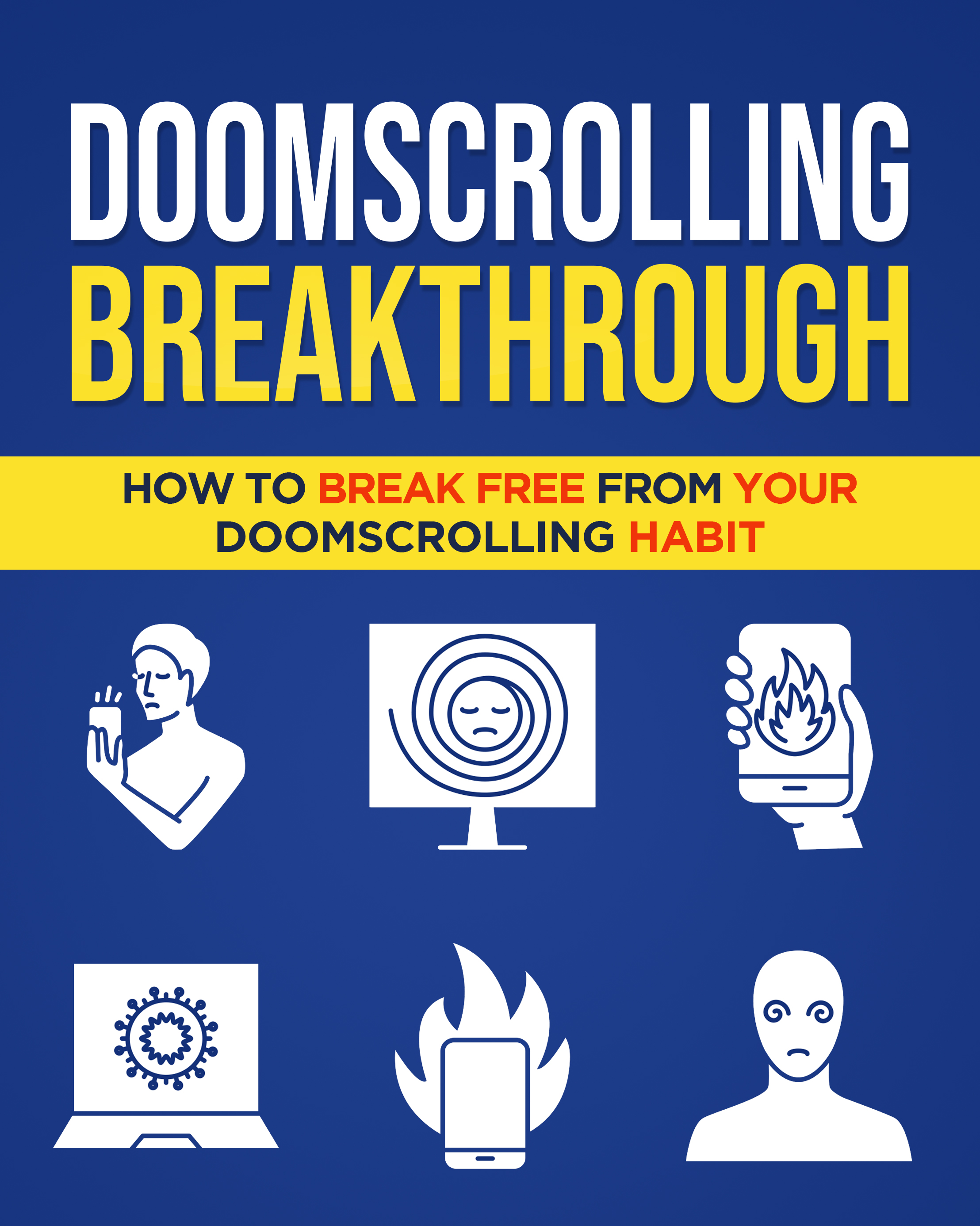
Doomscrolling is the constant consumption of negative news and social media content, which can harm mental well-being. Set boundaries, practice self-care, and prioritize mental health while staying informed.
USD $4.97
Doomscrolling is a term used to describe continuously consuming negative and distressing news or social media content, often to the detriment of one's mental well-being. It refers to people's propensity to become engrossed in a never-ending cycle of scrolling through their social media feeds or news websites, immersing themselves in a never-ending stream of upsetting or uncomfortable material.
Doomscrolling is a term used to describe continuously consuming negative and distressing news or social media content, often to the detriment of one's mental well-being. It refers to people's propensity to become engrossed in a never-ending cycle of scrolling through their social media feeds or news websites, immersing themselves in a never-ending stream of upsetting or uncomfortable material.
The term "doom-scrolling" gained popularity, particularly during the COVID-19 pandemic when people found themselves overwhelmed by the constant influx of pandemic-related news, statistics, and updates. However, the behavior is not limited to any specific topic or event and can occur in response to negative information or content.
Doomscrolling can have various adverse effects on mental health. It can contribute to feelings of anxiety, stress, helplessness, and even depression. Constant exposure to distressing news without taking breaks or engaging in self-care can affect one's overall well-being.
To combat doom-scrolling, it's essential to be mindful of your media consumption habits. Here are some starting points:
1. Set boundaries: Allocate specific periods for consuming news or social media, and stick to those limits. Avoid checking your phone or computer before bed or during other designated relaxation times.
2. Engage in self-care: Taking breaks from screens, exercising, reading a book, practicing mindfulness or meditation, Activities that promote relaxation and well-being include reading, exercising, and spending time with loved ones.
3. Seek reliable sources: Be mindful of the sources of information you consume. Verify the credibility of news sources and rely on reputable outlets. Avoid sensationalist or clickbait headlines that may exacerbate anxiety.
4. Practice digital detox: Consider taking regular breaks from social media. Disconnecting from the continual flow of information can help you relax and focus on other elements of your life.
5. Be selective with your feed: Curate your social media feeds to include positive, uplifting, or educational content. Unfollow or mute accounts that consistently share distressing or damaging news.
Remember, staying informed about important issues is essential, but it's also crucial to prioritize your mental health and well-being. Balancing your media consumption and self-care activities can help mitigate the adverse effects of room scrolling.